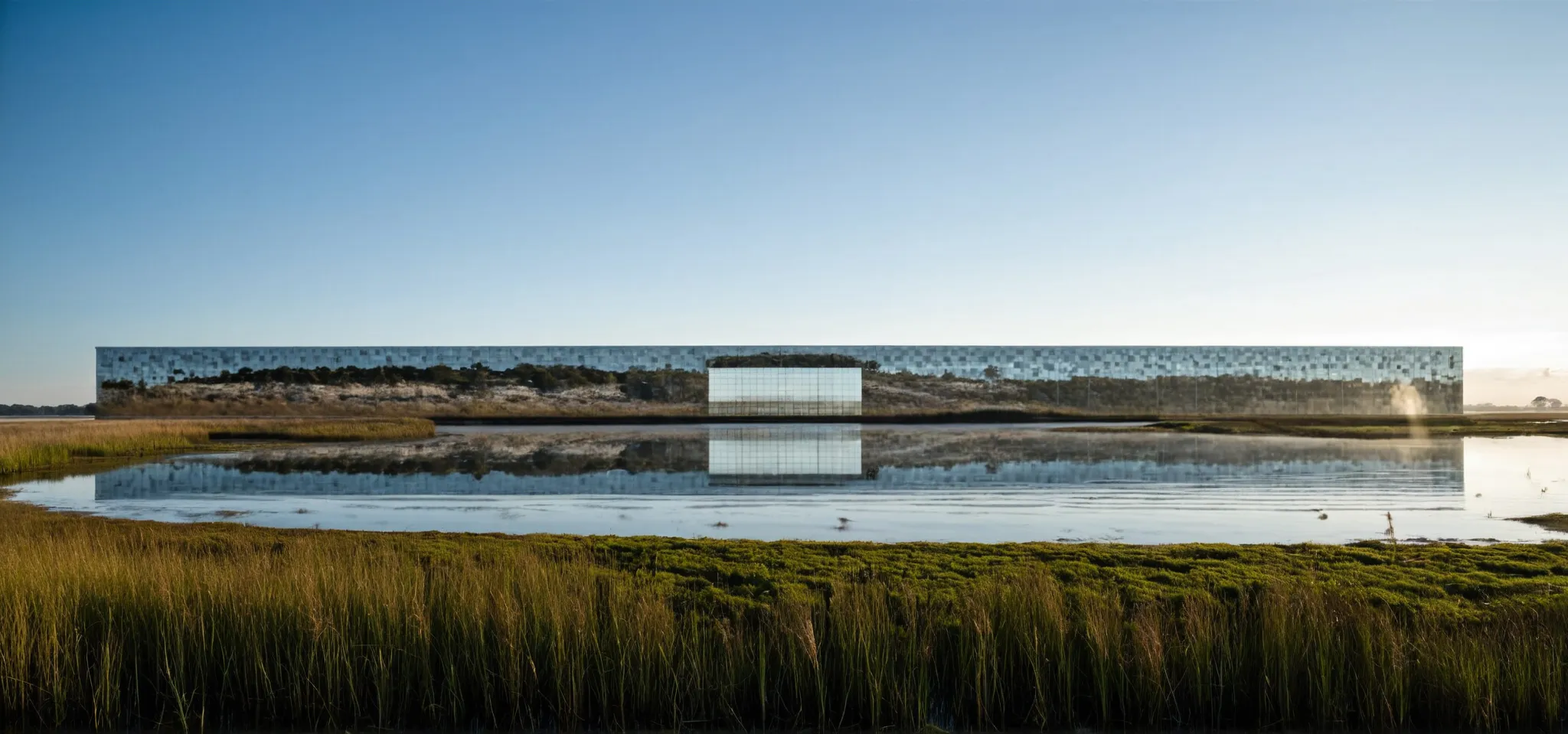
In a capstone design studio led by Cas Esbach at the Savannah College of Art and Design (SCAD), architecture students engaged with the fragile future of Maryland’s Smith Island. Through research, narrative, and AI-generated imagery, they visualized not just buildings, but the evolving consequences of their proposals.
Smith Island, a rapidly eroding chain of inhabited marsh islands in the Chesapeake Bay, is one of America’s most endangered communities. Its shrinking landmass, aging infrastructure, and vanishing cultural heritage pose urgent questions that are ecological, political, and architectural. How do we intervene in a place that may not survive the century?

In this experimental studio, students were challenged to confront that question head-on. The course unfolded as a research-driven investigation into architecture’s role in landscapes shaped by disappearance.
Rather than begin with predefined programs, students were asked to listen first. They gathered data from climate records, oral histories, shoreline maps, snapchat stories, and dialect archives. Projects emerged from this research, grounded in personal values, community empathy, and material speculation.
Some proposals resisted disappearance: levees, elevated structures, and adaptive reuse strategies offered spatial responses to rising water and retreat. Others accepted erosion as a collaborator, envisioning floating habitats, decomposing pavilions, or time-based installations designed to vanish along with the island.
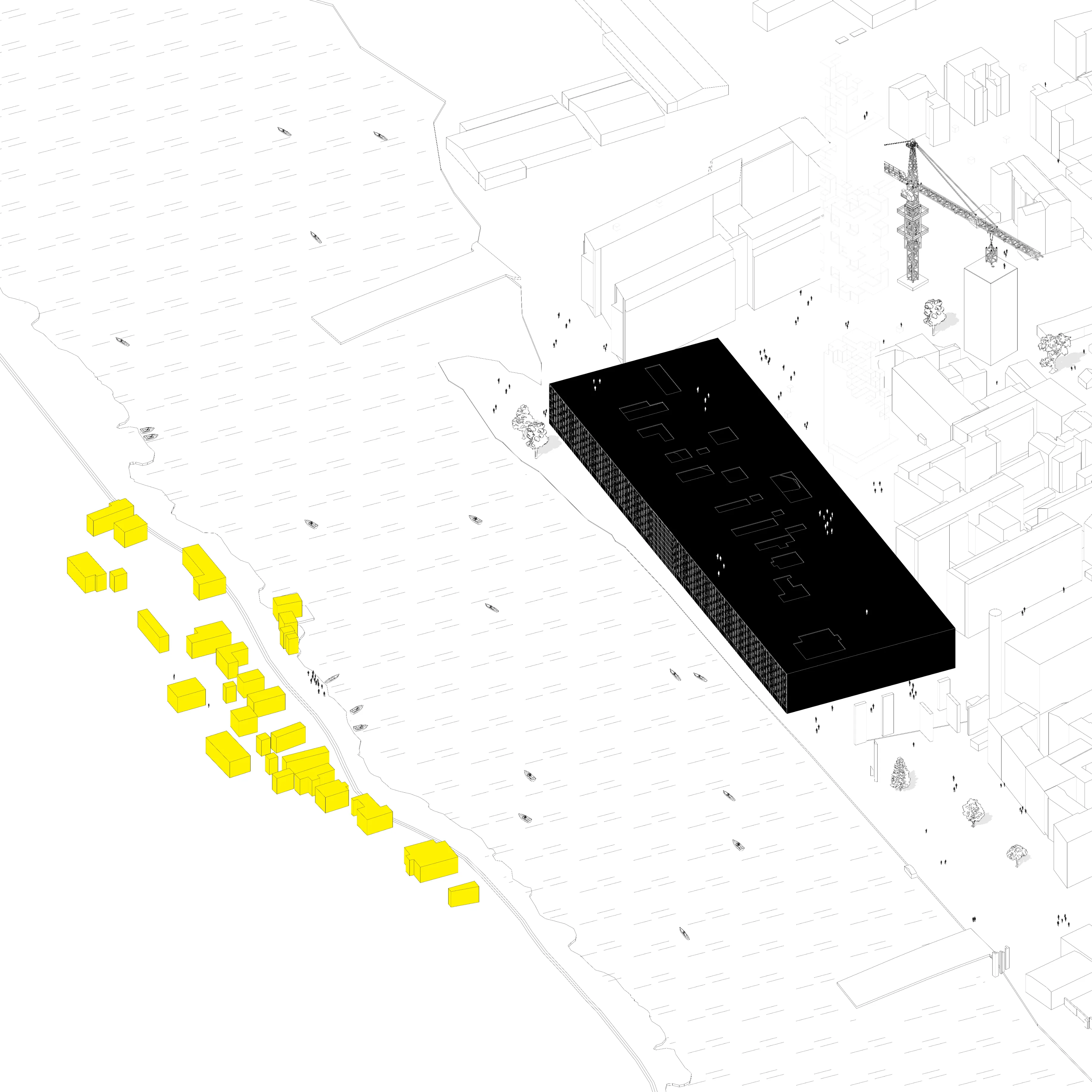
A key feature of the studio was the use of artificial intelligence. Students employed generative models to develop speculative imagery and atmospheric studies, extending the emotional and narrative depth of their work.
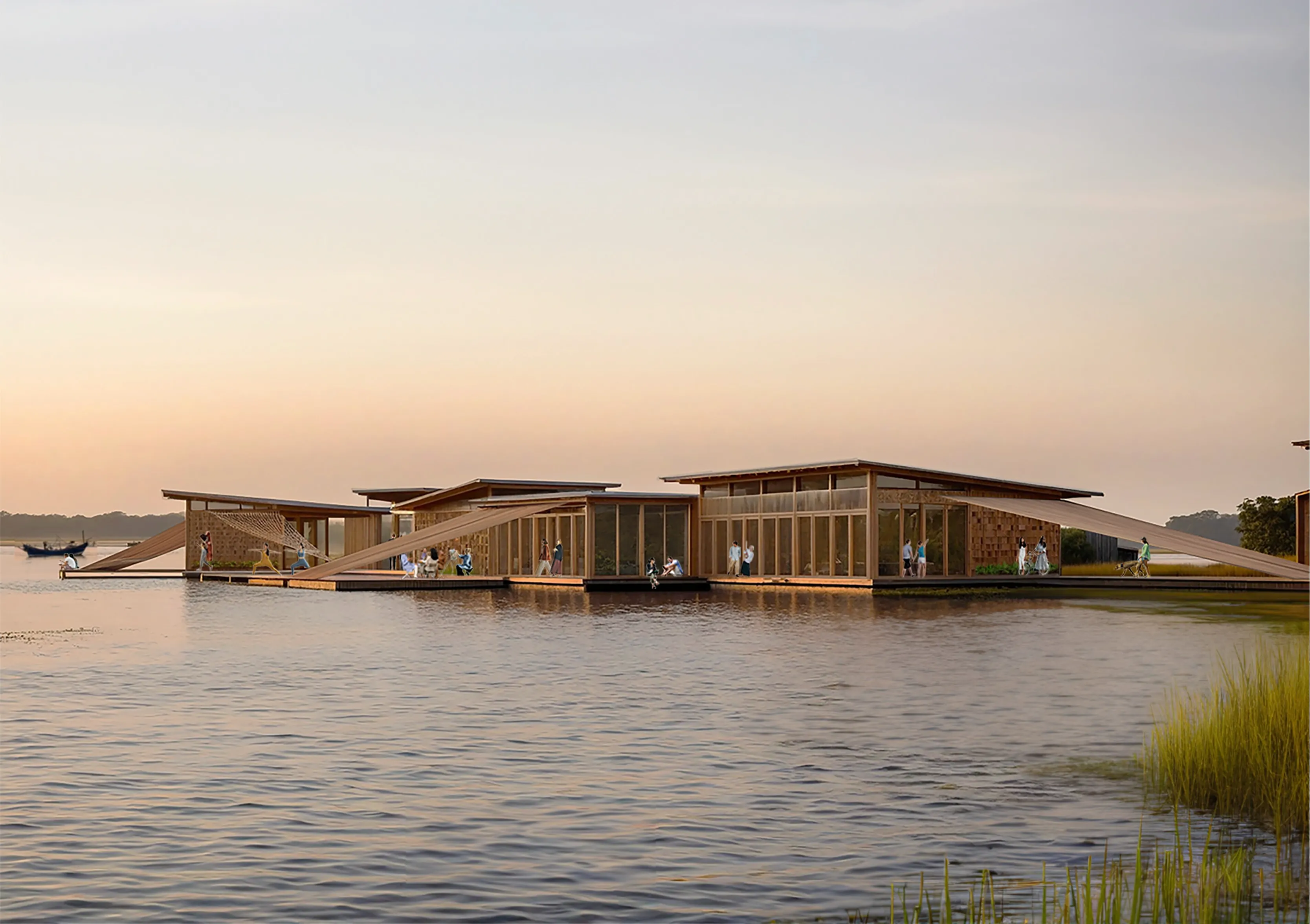

“AI allowed students to more realistically represent and communicate their design intentions,” notes Esbach. “It not only helped express what they had in mind, but also allowed them to refine those ideas much earlier in the process.”
Though the final images appear polished, many reflected iterative thinking. Students used AI to explore erosion scenarios, seasonal shifts, and the slow transformation of site and structure. The results emphasized mood over precision, often inviting open interpretation.
This approach also surfaced questions around authorship, fidelity, and bias. The goal was not to resolve these issues, but to raise them. AI wasn’t used to replace human creativity, but to visualize uncertainty, and sometimes, to amplify it.
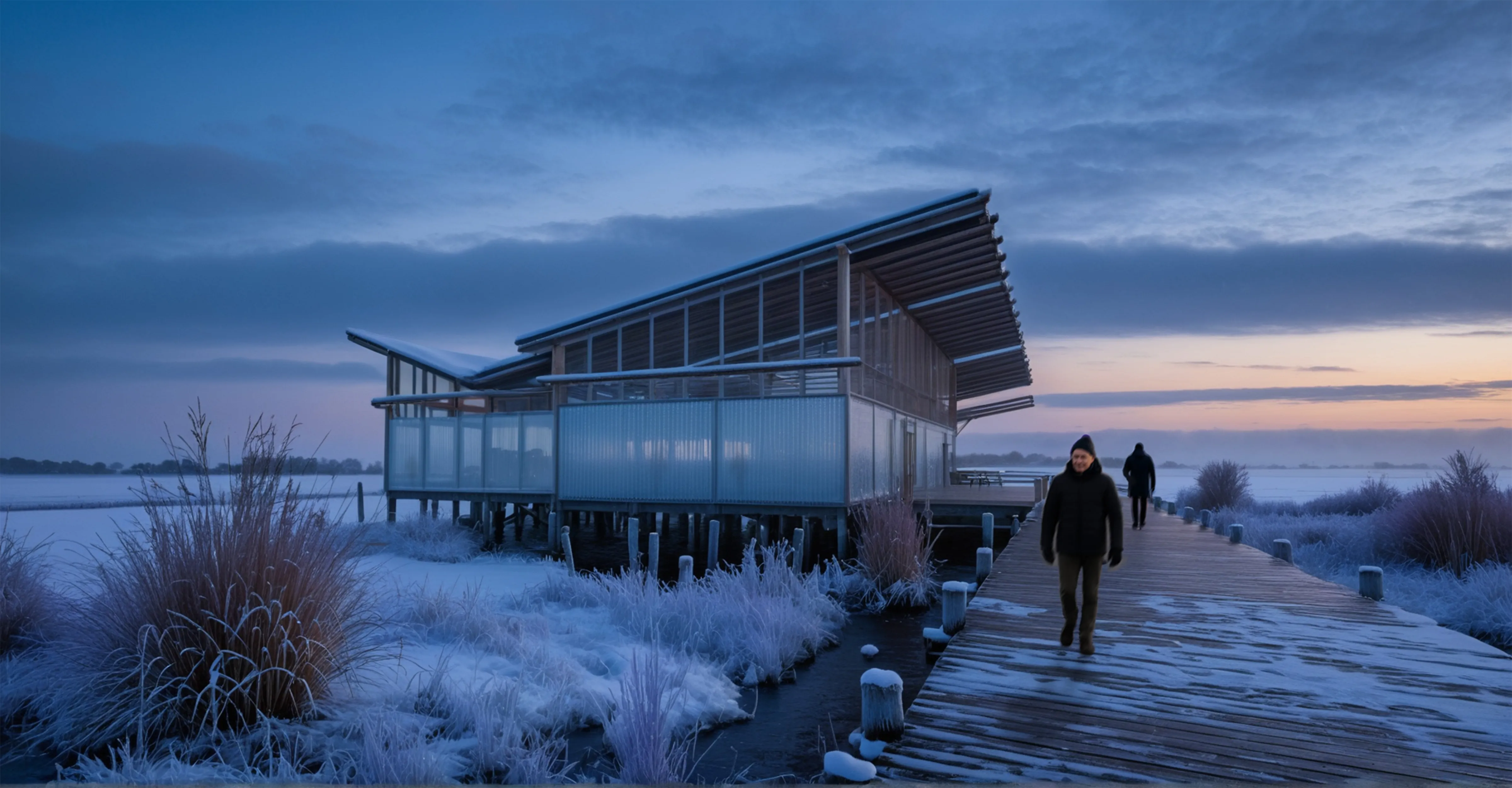
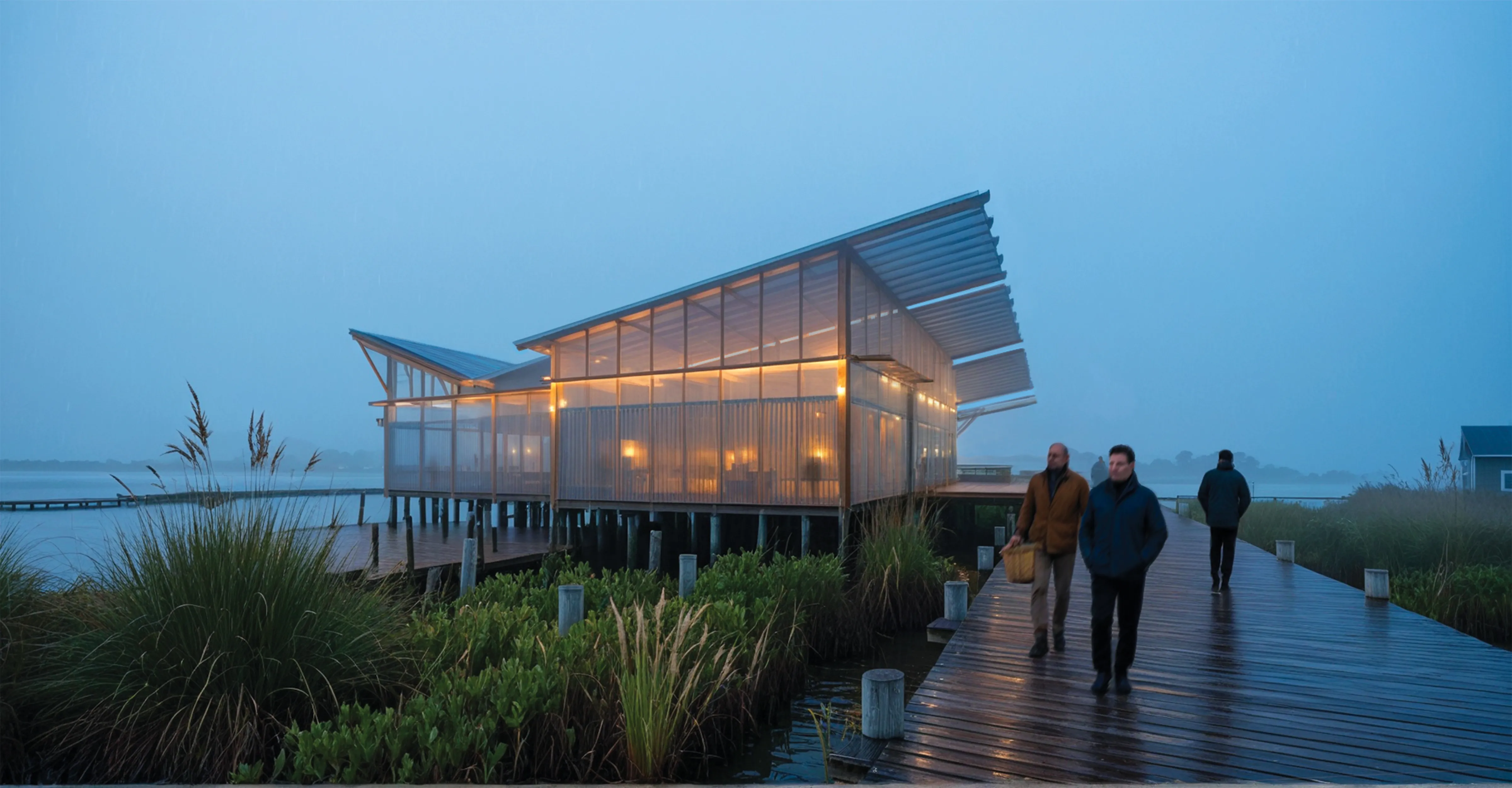
This studio did not aim to “solve” Smith Island. It aimed to slow down and study it. What role can architecture play in places that are actively disappearing? Can design accommodate grief, transition, or collective memory?
The projects that emerged are as fragile and layered as the island itself. Rooted in site, shaped by imagination, and framed by a quiet urgency, they offer a glimpse into how architectural education can confront planetary instability. Through architecture, research, and AI-driven storytelling, SCAD students didn’t just design structures, they explored new ways of seeing, feeling, and thinking about the future.
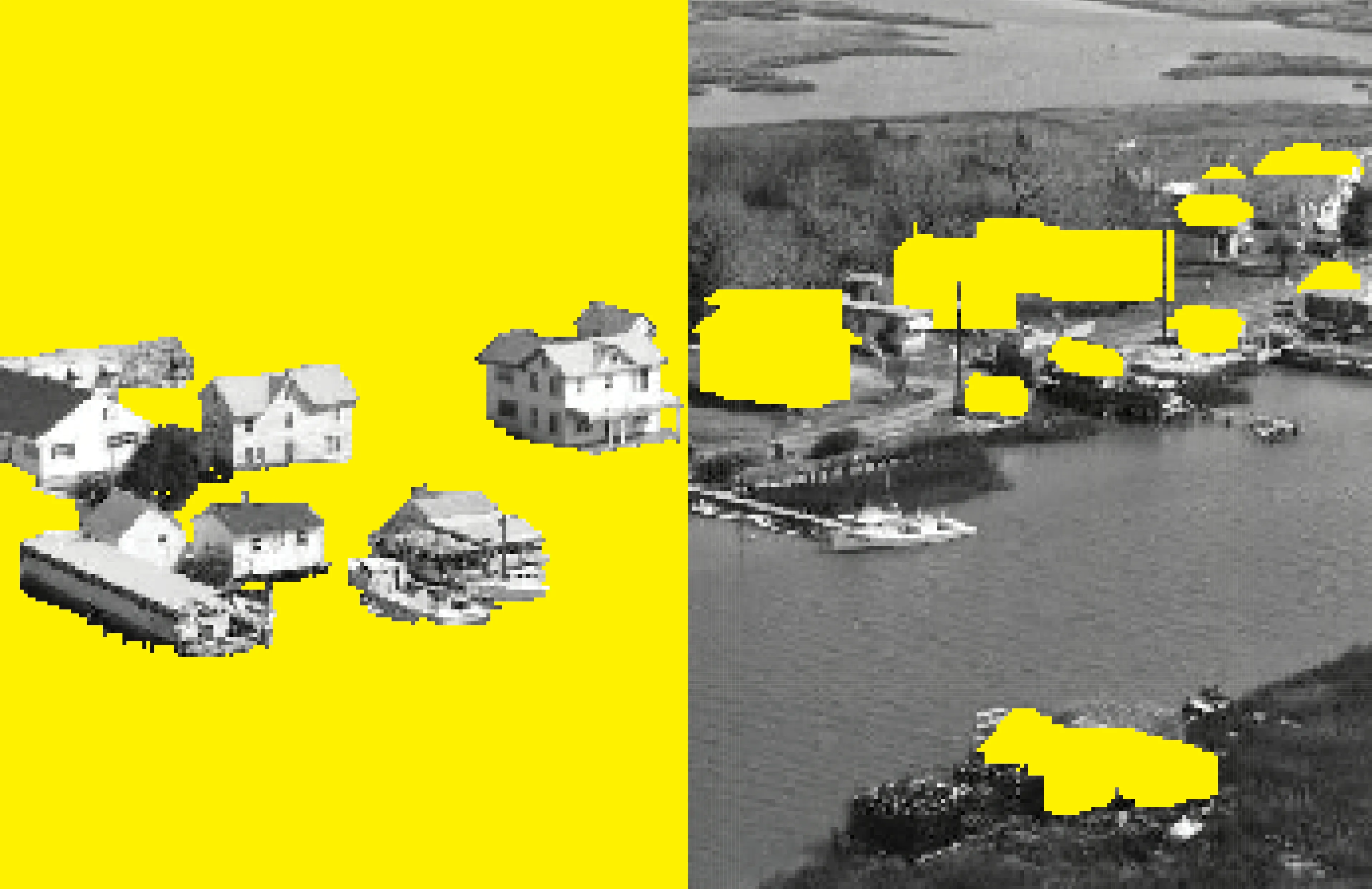
Dean: Geoffrey Taylor
Chair: Aaron Wilner
Professor: Cas Esbach
Students: Ben Bartlett, Gabrielle Billingslea,
Gabriela Maria,
Peyton Hawes,
Skye Holland,
Kazu Kaneko,
Annie Martindale,
Citlalli Reyes-Perez,
Ashley Roberson,
Kris Brooke Romero,
Victoria Romoleroux,
Matthew Shannon,
Rea Vishkurti,
Emma Walton,
Max Whittle,
Vincent Zheng,
Jiaqi Zhu
You must be logged in to comment.